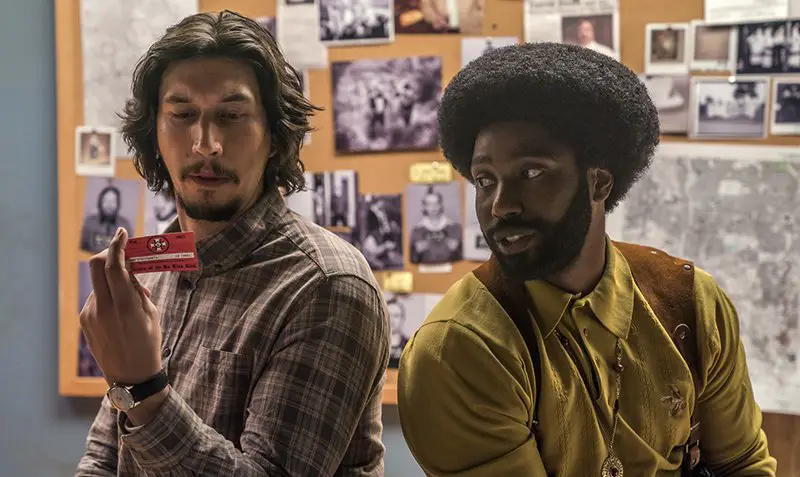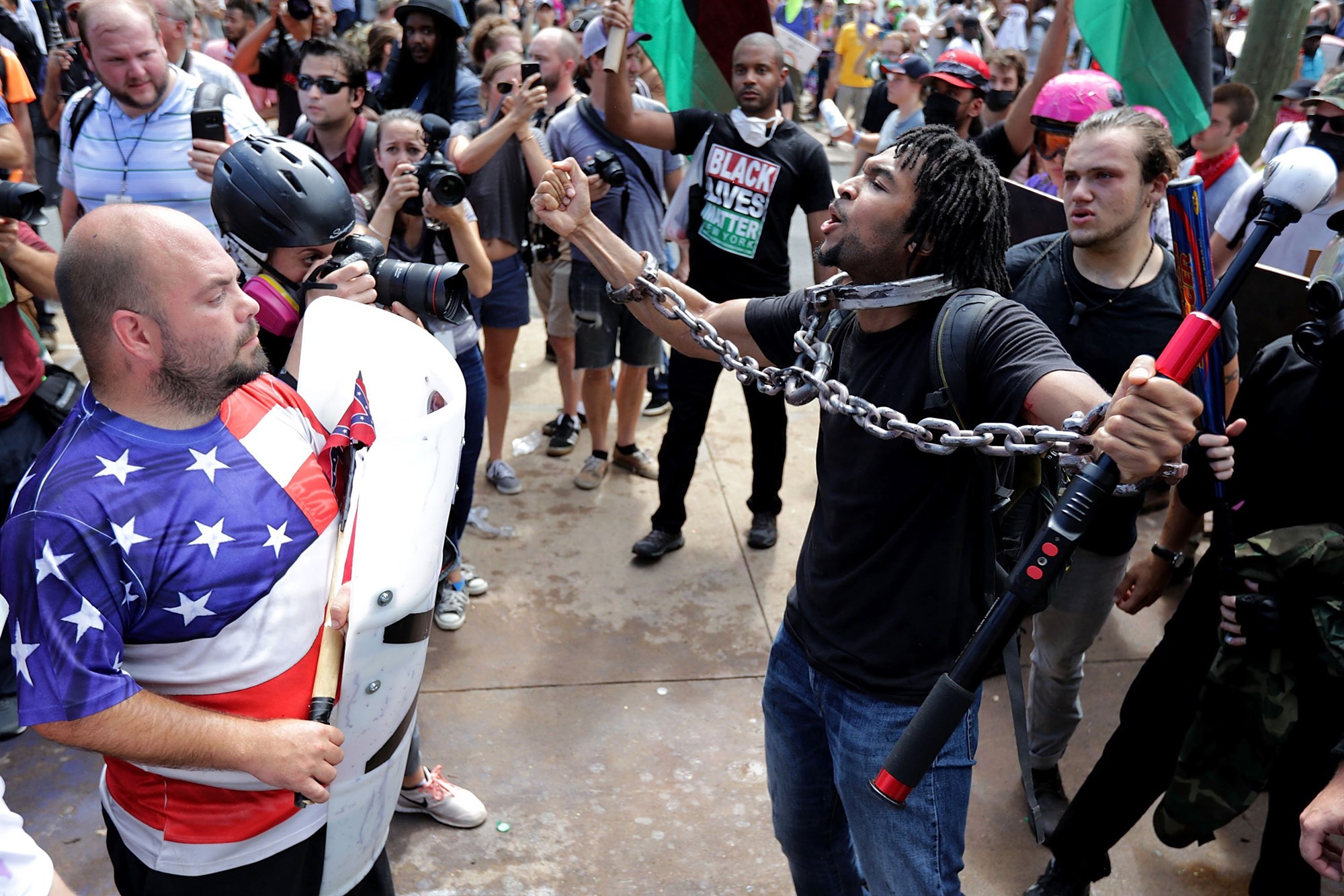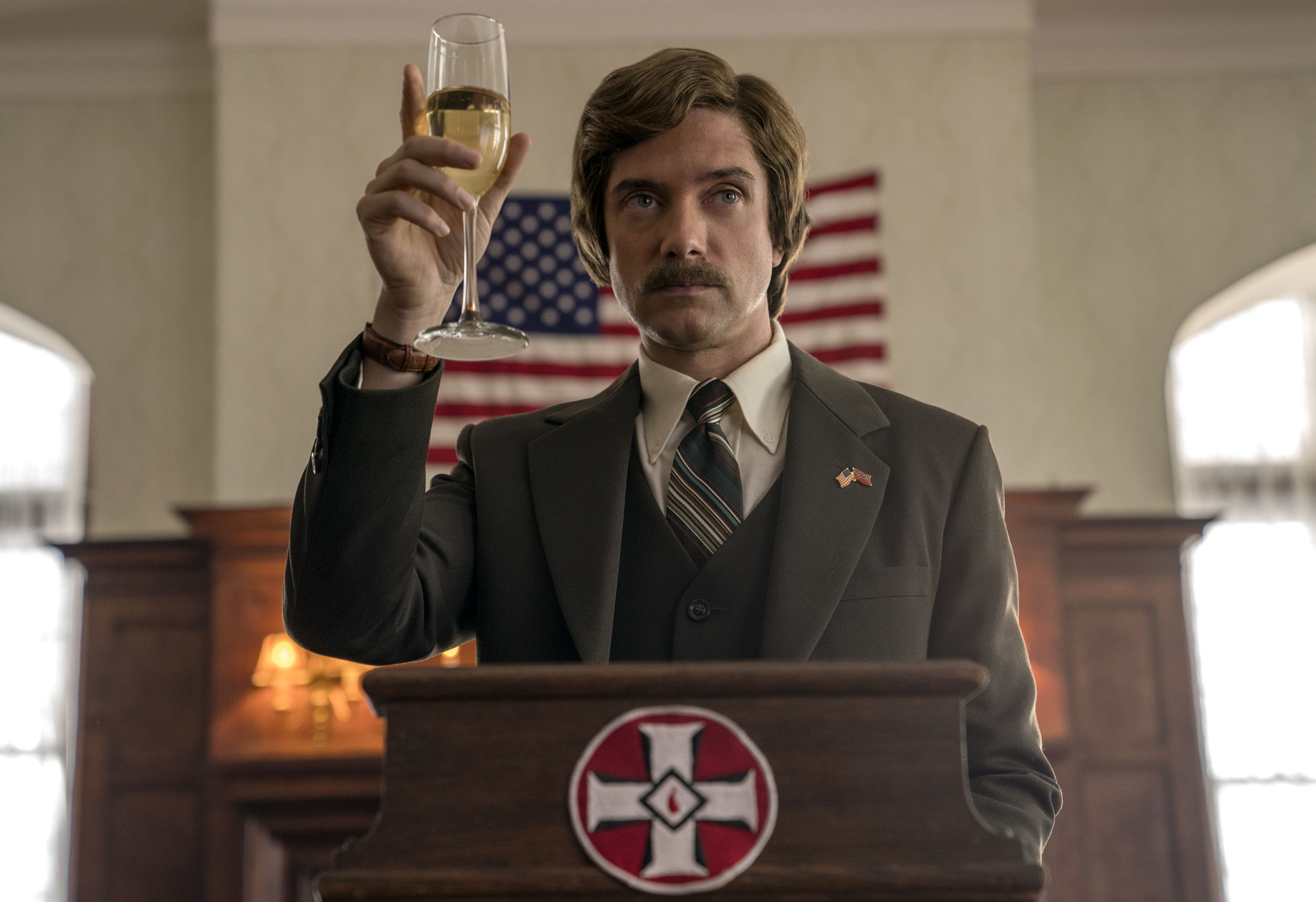In mid-August of last year, news coverage was dominated by disturbing images of hundreds of white men carrying flaming torches through the campus of The University of Virginia in Charlottesville during a “Unite the Right” rally.
Organized by white nationalist and white supremacist groups, the event was both a statement of racist solidarity and a protest of the removal of Confederate monuments across the South. Things eventually turned violent when protesters and counter protesters began to clash, leading to the death of Heather Hayer, who was run over by a car driven by a neo-Nazi.
For legendary director Spike Lee, it was a solemn reminder of the importance of his then in production film, “BlackKklansman,” set to be released this week on the first anniversary of the event.
Based on the memoir of the same name, “BlackKklansman” tells the true story of Ron Stallworth, Colorado Springs’ first black detective who infiltrated the local chapter of the Ku Klux Klan via telephone in 1979. For nine months, Stallworth posed over the phone as a white man hoping to join the Klan, even speaking with former Grand Wizard David Duke on several occasions.

In any situation that required face to face meetings, a white narcotics officer was used as a decoy, and no one in the Klan seemed to figure out that they were communicating with two different people. It’s a series of events that feel so impossible that they couldn’t possibly be real, yet so outrageous that no one could possibly make them up.
It’s incredible to think that the Klan itself had a hand in writing its own satire without even realizing it. In his book, Stallworth mentions his amazement at the fact that no one ever questioned the fact that he was a black man posing as a racist, and finds if funny that the self-proclaimed protectors of the white race were “bamboozled to the point of incompetence.”
He even describes an instance when, while talking with David Duke on the phone, the Grand Wizard went into detail about how easy it is to distinguish different races based solely on the way that they talk. Stallworth even quotes Duke as saying, “I can tell that you’re a pure Aryan white man by the way you talk, the way you pronounce certain words and letters.”
White supremacy, while always lurking in the trenches of political discourse, has become a far more prominent issue in the United States since the election of Donald Trump.
Whatever your personal opinions of the president might be, you’d be hard pressed to deny that he has emboldened racist fanatics and given them reason to believe the fantasy that their views are somehow tolerable. It’s certainly not lost on Spike Lee, who said in an interview that Trump “has given the green light for the Klan, for the alt-right, for the neo-Nazis to come out in the open.
There is no need for the so-called dog whistle any more, they are in full daylight.” Perhaps it’s no coincidence, then, that the trailer for “BlackKklansman” features a moment in which David Duke, played by Topher Grace, toasts to “America First,” a central pillar of Trump’s policy.

The images that came out of Charlottesville were a shocking and terrifying culmination of the alt-right’s efforts towards becoming legitimate under the Trump administration. Already sympathetic to the president’s offensive rhetoric toward Latino immigrants and Muslim refugees, they felt a sense of victory after Trump did not outrightly denounce those who participated in the Unite the Right rally, even going as far as to say that “both sides” were to share the blame.
Spike Lee said later that “people need to be reminded that the current president of the United States says things like that.” With permission from Hayer’s mother, Lee ends “BlackKklansman” with footage from that day in Charlottesville, making it clear that these problems have been a part of America for decades.
It’s those miniscule moments of being tolerated, intentionally or not, that make the Klan even more dangerous today than during the time of Stallworth’s investigation. At that point, the organization’s political influence paled in comparison to what it had been during the 1920s, when it was arguably at its most powerful after being revived by D.W. Griffith’s propaganda film “The Birth of a Nation,” which depicted members as heroes of the South during the Civil War and Reconstruction Era.
While white nationalists were a bit quieter about their beliefs just a few decades ago, there are now at least eight who are running for office in the November midterms.
As disconcerting as white supremacism’s presence is American culture is, “BlackKklansman” finds a way to drive the serious topic with moments that allow the audience to find both humor and horror in how absurd these people can really be.
In some moments, it feels okay to be entertained by how clownish members of the Klan are. Stallworth even wrote that after learning about the group’s plan to do a cross burning before an initiation, he couldn’t help but laugh at how “they got their ideas about how to light a cross from a James Bond movie,” and that “it was as if Dennis the Menace were running a hate group.”
But while these people practically set themselves up for ridicule, that doesn’t mean that they shouldn’t be taken seriously. Though the Klan is smaller and relatively unorganized nationwide, its extremist cells are unpredictable and do not hesitate to resort to violence in order to spread the fear that keeps them alive.
The more valid and acknowledged that they feel, the more abrasive they’ll get. When you’re talking about people who think that God himself ordained the white race to be superior to all others, that should be absolutely terrifying.
The critical reception of “BlackKklansman” already indicates that it could become a cultural phenomenon similar to the 2017 film, “Get Out.” It currently has a score of 96 percent on Rotten Tomatoes and won the Grand Prix of the Cannes Film Festival, making it Oscar-buzzworthy and a potential awards-season favorite.
Beyond its cinematic quality, it poses a poignant message to an America that is seeing itself take a step backward in its fight against the fear that the Klan thrives on. But beyond that, it’s a reminder of what really lies beneath those white hoods and swastikas. In Ron Stallworth’s own words, “It’s just some clown.”

















